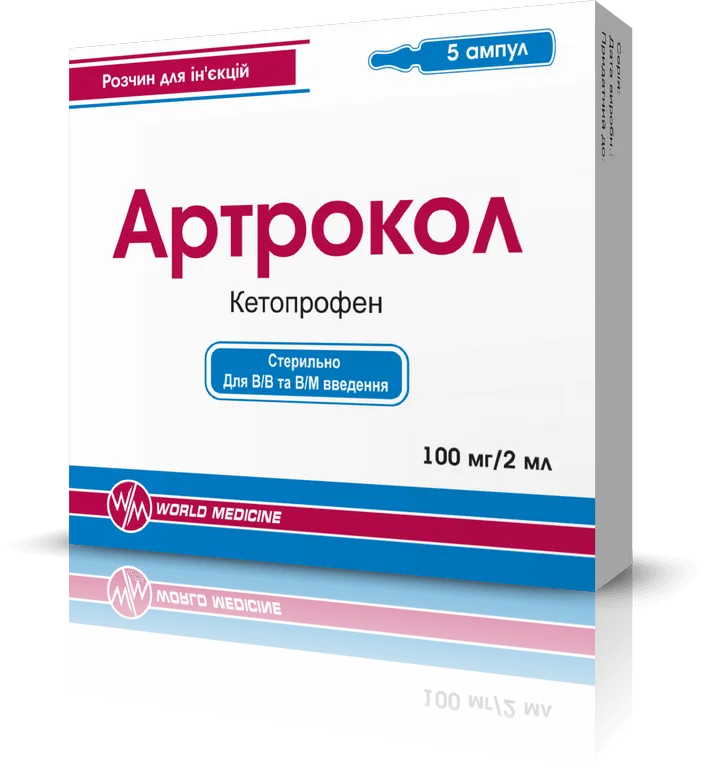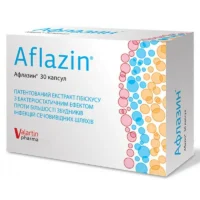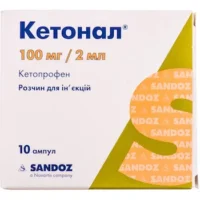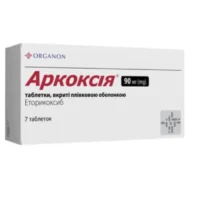Description
Artrocol (Ketoprofen) Solution for Injections 100 mg/2 ml Ampoules 2 ml №5
Ingredients:
Each 2 ml ampoule contains 100 mg of ketoprofen as the active ingredient.
Mechanism of Action:
Ketoprofen, a nonsteroidal anti-inflammatory drug (NSAID), exerts its pharmacological effects by inhibiting the enzyme cyclooxygenase, thereby reducing the synthesis of prostaglandins responsible for pain and inflammation.
Pharmacological Properties:
Ketoprofen possesses analgesic, anti-inflammatory, and antipyretic properties, making it effective in managing pain and inflammation associated with various musculoskeletal conditions.
Indications for Use:
Artrocol injections are indicated for the relief of pain and inflammation in conditions such as arthritis, ankylosing spondylitis, and musculoskeletal disorders.
Contraindications:
Artrocol injections should not be administered to patients with a history of hypersensitivity to ketoprofen or other NSAIDs, peptic ulcer disease, or renal impairment.
Side Effects:
Common side effects of Artrocol injections may include gastrointestinal upset, dizziness, and headache. Patients should seek medical advice if any adverse reactions occur.
Directions for Use:
Artrocol injections are intended for intramuscular administration only. The injection site should be rotated to minimize irritation. Dosage typically ranges from 100-200 mg per day, divided into multiple doses as prescribed by a healthcare provider.
Benefits Compared to Analogues:
Artrocol injections offer effective pain relief and anti-inflammatory action with a favorable safety profile compared to other NSAIDs, making it a preferred choice for managing musculoskeletal conditions.
Suitable Patient Groups:
Artrocol injections are suitable for adult patients with arthritis, ankylosing spondylitis, or musculoskeletal disorders. Dosage adjustments may be necessary for elderly individuals or patients with specific health conditions.
Storage Conditions and Shelf Life:
- Storage: Artrocol injections should be stored at room temperature, protected from light and moisture.
- Shelf Life: Check the expiration date on the packaging and do not use the product beyond the specified shelf life.
Packaging Description:
Artrocol injections are supplied in 2 ml ampoules, each containing 100 mg of ketoprofen. The packaging includes 5 ampoules per pack.
Clinical Evidence and Proven Effectiveness:
Ketoprofen has been clinically demonstrated to effectively manage pain and inflammation in musculoskeletal conditions. Research published in the Journal of Clinical Rheumatology highlighted the efficacy of ketoprofen injections in reducing pain and improving joint function in patients with osteoarthritis.





